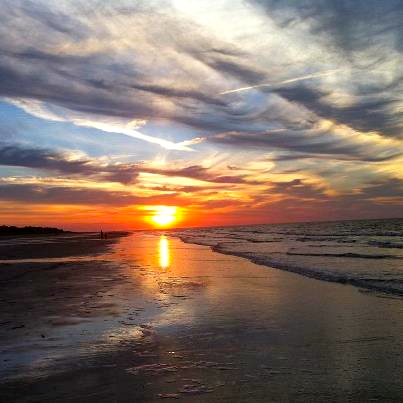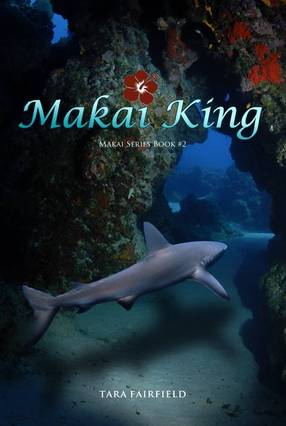|
What does the word OCEANS mean to you? It could be your favorite memory of summer or the name of the song that got you through a recent struggle. What else does it mean? My guest this week, Dr. Tara Fairfield, shares with us the importance of oceans and her latest novel, Makai King, the sequel to her well received Makai Queen. “And God blessed them. And God said to them, “Be fruitful and multiply and fill the earth and subdue it and have dominion over the fish of the sea and over the birds of the heavens and over every living thing that moves on the earth.” Genesis 1:28 God gave humans responsibility for the earth and all living things, including the ocean and it’s vast resources. Our stewardship under the authority of God implies we have a moral obligation and will be accountable for how we manage this charge. While researching for the second installment of my Makai Series: Makai King, I became increasingly concerned about the health of our oceans and wove themes of ocean conservation into the story. We all need to care about this issue, without oceans we cannot survive as a race on this planet. In 2013 a report from the International Program on the State of the Ocean (IPSO): “The latest International Programme on the State of the Ocean (IPSO)/IUCN review of science on anthropogenic stressors on the ocean go beyond the conclusion reached last week by the UN climate change panel the IPCC that the ocean is absorbing much of the warming and unprecedented levels of carbon dioxide and warn that the cumulative impact of this with other ocean stressors is far graver than previous estimates. Decreasing oxygen levels in the ocean caused by climate change and nitrogen run-off, combined with other chemical pollution and rampant overfishing are undermining the ability of the ocean to withstand these so-called 'carbon perturbations', meaning its role as Earth's 'buffer' is seriously compromised.” Wondering what this all means? In lay terms it tells us we are not being good and responsible stewards of this precious resource. Here is more information from the ISPO State of the Ocean press release in 2013: · De-oxygenation: the evidence is accumulating that the oxygen inventory of the ocean is progressively declining. Predictions for ocean oxygen content suggest a decline of between 1% and 7% by 2100. This is occurring in two ways: the broad trend of decreasing oxygen levels in tropical oceans and areas of the North Pacific over the last 50 years; and the dramatic increase in coastal hypoxia (low oxygen) associated with eutrophication. The former is caused by global warming, the second by increased nutrient runoff from agriculture and sewage. · Acidification: If current levels of CO2 release continue we can expect extremely serious consequences for ocean life, and in turn food and coastal protection; at CO2 concentrations of 450-500 ppm (projected in 2030-2050) erosion will exceed calcification in the coral reef building process, resulting in the extinction of some species and decline in biodiversity overall. · Warming: As made clear by the IPCC, the ocean is taking the brunt of warming in the climate system, with direct and well-documented physical and biogeochemical consequences. The impacts which continued warming is projected to have in the decades to 2050 include: reduced seasonal ice zones, including the disappearance of Arctic summer sea ice by ca. 2037; increasing stratification of ocean layers, leading to oxygen depletion; increased venting of the GHG methane from the Arctic seabed (a factor not considered by the IPCC); and increased incidence of anoxic and hypoxic (low oxygen) events. · The ‘deadly trio’ of the above three stressors - acidification, warming and deoxygenation - is seriously effecting how productive and efficient the ocean is, as temperatures, chemistry, surface stratification, nutrient and oxygen supply are all implicated, meaning that many organisms will find themselves in unsuitable environments. These impacts will have cascading consequences for marine biology, including altered food web dynamics and the expansion of pathogens. · Continued overfishing is serving to further undermine the resilience of ocean systems, and contrary to some claims, despite some improvements largely in developed regions, fisheries management is still failing to halt the decline of key species and damage to the ecosystems on which marine life depends. In 2012 the UN FAO determined that 70% of world fish populations are unsustainably exploited, of which 30% have biomass collapsed to less than 10% of unfished levels. A recent global assessment of compliance with Article 7 (fishery management) of the 1995 FAO Code of Conduct for Responsible Fisheries, awarded 60% of countries a “fail” grade, and saw no country identified as being overall “good”. As a matter of urgency, the marine scientists say that world governments must: • Reduce global C02 emissions to limit temperature rise to less than 2oC, or below 450 CO2e. Current targets for carbon emission reductions are insufficient in terms of ensuring coral reef survival and other biological effects of acidification, especially as there is a time lag of several decades between atmospheric CO2 and CO2 dissolved in the ocean. Potential knock-on effects of climate change in the ocean, such as methane release from melting This is not meant as a scare tactic, it is a call to action. We are all stewards of this shared resource and it will take all of us working together to restore the health of our oceans. If we choose to ignore the facts or turn our heads, the problem will not disappear. Please join me in doing one small thing to support ocean conservancy and be the good steward God has called you to be. Here are some ideas of one small thing you can do: 1. Educate yourself and your family on the issues. 2. Support local conservation efforts. 3. Reduce your use of plastics. 4. Use your wallet to send a message by not supporting companies who dump waste into the ocean or food products that use unsafe fishing practices. A new queen reigns beneath the sea in the underwater kingdom of Moku-ola. Armed with a sense of destiny, and friends loyal and true, Queen Tessa faces her greatest challenge ever as the ruler of sharks threatens her kingdom. Her heart has chosen one man to become her king, but another seeks to take it by force. Can her strength and resolve endure? Will her faith in the Creator’s plan and protection remain?
In Makai King, second book in the Makai Series, Christian psychologist Tara Fairfield continues the adventures of Tessa in the whimsical world of Moku-ola, which began in Makai Queen, showing readers the power of forgiveness and understanding your identity as a child of God. So, let me ask again. What does the word OCEANS mean to you?
2 Comments
9/4/2014 11:16:33 am
Thank you so much for hosing me on your blog! God Bless!
Reply
9/5/2014 12:13:26 am
Tara, thanks for the great post! I am a beach lover and appreciated these tips on how to maintain our beautiful oceans.
Reply
Leave a Reply. |
Laura L. SmithCategories
All
|




 RSS Feed
RSS Feed